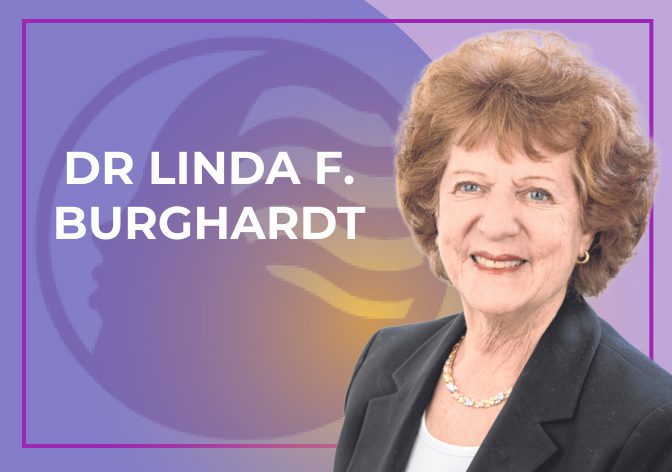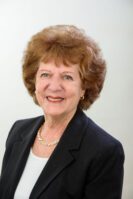
Dr. Linda F. Burghardt is a journalist and author from Great Neck, and has served as the Scholar-in-Residence at the Holocaust Memorial & Tolerance Center for the past ten years.
She worked as a reporter for The New York Times for twenty years and is the author of three non-fiction books: “Jewish Holiday Traditions,” “The Bar and Bat Mitzvah Book,” and “The Happy Empty Nest,” published by Kensington Books, New York, N.Y.
Her articles and essays have appeared in numerous newspapers across the U.S. and overseas, including USA Today, The Times of Israel, The Jerusalem Post, The Christian Science Monitor, The Forward, The Chicago Tribune, The New York Daily News, The San Francisco Chronicle and The Atlanta Journal-Constitution, among other major publications.

She has lectured to both national and international audiences on a broad range of topics, such as the new antisemitism and the BDS Movement, Jewish humor and the Holocaust, Moses Mendelssohn and the Jewish Enlightenment, and the history of the Yiddish language.
In addition, she is a regular guest professor at Columbia University in the field of research methodology, and has been a visiting lecturer at Long Island University. Her research in the field of epigenetics and inherited trauma among the children of Holocaust survivors was a featured presentation at a recent United Nations conference on children and war.
She has also presented papers at numerous academic conferences, as well as offering regular presentations at the Holocaust Center and other regional venues, and she leads a monthly online book group focusing on Holocaust-related contemporary fiction.
Dr. Burghardt holds a Ph.D. from Long Island University and is the daughter of Holocaust survivors from Vienna. Through her work at the Holocaust Memorial & Tolerance Center, she coordinates a varied community of scholars, lay historians, docents, and Holocaust survivors and their descendants who share her twin goals of preserving Holocaust memory and creating new knowledge through research.
Dr. Burghardt knows she is fortunate that her professional passions and personal priorities match in her work at the Holocaust Center, and while many people consider this a rare gift, she believes this opportunity can be found in many types of non-profit work. In all the industries where Dr. Burghardt has worked and succeeded – journalism, corporate management, academia – the challenges she faced came twinned with the possibility of overcoming them in non-profit far more frequently than in other worlds of work.
This is because in the best of circumstances non-profits’ overarching goals transcend the drive to create wealth and offer the possibility of equality, with women being seen primarily or at best even exclusively for what they can contribute.
But do deeply ingrained and institutionalized sexist policies still exist, and sometimes even dominate the office culture, as in the past?
As a young student, for example, when Dr. Burghardt applied to college, she found that nearly all the Ivy League schools were closed to women, setting up the first blockade in what often became a cascading series of obstacles to success.
No progress in overcoming challenges for women has been cheered more fully than when her twin daughters were able to earn their bachelor’s degrees at Yale and Princeton.
When applying for her first job, Dr. Burghardt was stunned to find The New York Times, the most respected source of job listings at the time, separated listings of opportunities by male and female: management trainee spots for men, secretarial offers for women.
But these restrictions, of course, and a great deal more, have been thrown in the garbage heap where they belong, as we have evolved into an ever-more-fair society.
Yet significant challenges remain, of course, and our efforts to gain equality for women in the workplace are still critically needed. Let’s join hands to make this dream come true.






